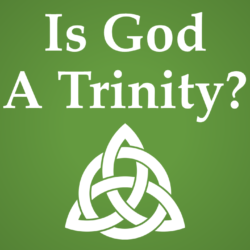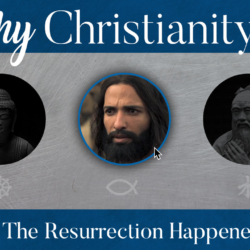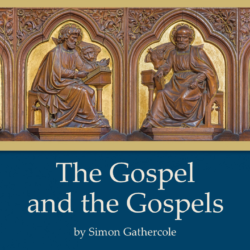Last time we covered two corrected corruptions (1 Timothy 3.16 and 1 John 5.7). This time we’ll consider two uncorrected corruptions, including the long ending on Mark (16.9-20) and the passage about the adulterous woman that Jesus saves (John 7.53-8.11). Although these two texts are not found in the earliest and best manuscripts and translators have known this for decades, they continue to include them in virtually all English translations. What’s going on here? In this episode you’ll learn the textual basis for both passages and the reasons why textual scholars don’t accept their authenticity.
—— Books ——
- New Testament Text and Translation Commentary by Philip W. Comfort
- Textual Commentary of the Greek New Testament by Bruce Metzger
- The NET Bible with 60,932 Translators’ Notes (online here)
—— Links ——
- For background on textual criticism see part 10 New Testament Textual Criticism as well as 6 Greek New Testament Papyri, 7 Greek New Testament Uncials, and 8 Other New Testament Manuscripts
- Check out all the lectures in How We Got the Bible
- See what other classes are available here or on the Restitutio Classes podcast (subscribe in Apple, Spotify, RSS feed)
- If you’d like to support Restitutio, you can donate here.
- Intro music: Good Vibes by MBB Attribution-ShareAlike 3.0 Unported (CC BY-SA 3.0) Free Download / Stream: Music promoted by Audio Library







I’ve really enjoyed listening to and learning from this series on how we got the Bible, Sean. Because you haven’t been afraid to dive into some of the mundane details, the reward for me has been that much greater. So many fascinating aspects!
I share your sentiments about the decision that most publishers have made regarding including textual corruptions in their translations. I’m not sure when a decision like that goes from being timid to being downright dishonest. Either way, it’s unfortunate, and gives the enemy a foothold. I’m looking forward to seeing what improvements any future English translations may make.
Lexham English Bible omits adultress and includes the longer ending of John 7:53- only as an addendum.
PS thank you so much for your work. 🙂
Thanks for putting this series together. While it is a bit of dry material sometimes, I am thoroughly enjoying it. I had a general knowledge of much of what you have shared, however, you have gone deeper and given me a better and more in-depth understanding of how the bible manuscripts were compiled into modern translations.
As for the topic of knowingly putting known corruptions into a translation because that is what is expected or desired by the general public, I find that to be quite sad. It is an example of following the general culture or tradition instead of being a genuine truth seeker. I think Christians as a whole need to stop being afraid of the truth and learn to embrace it, even if it is uncomfortable and not what they are used to. I love the slogan “the truth has nothing to fear” I think all of us need to make sure we are really okay with truth, whatever that is.
Thanks Sean for all the work you put into the podcast!
Brilliant, clear and informative. As a former Unitarian Christian converted to Unitarian Islam, but still very much interested in the Bible, I appreciate the intellectual honesty.